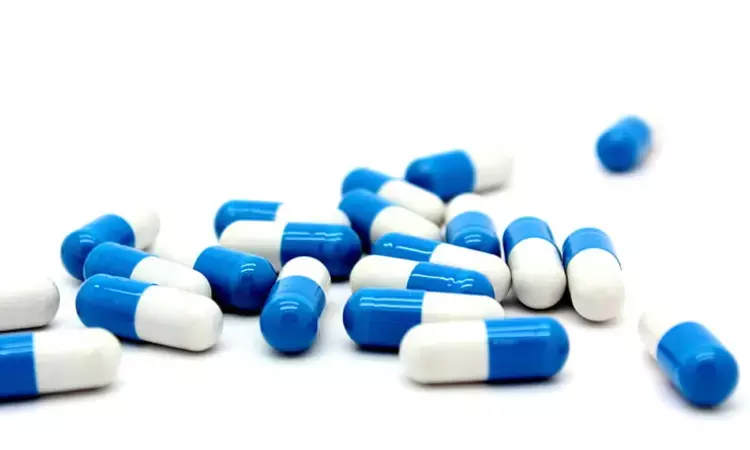- Home
- Medical news & Guidelines
- Anesthesiology
- Cardiology and CTVS
- Critical Care
- Dentistry
- Dermatology
- Diabetes and Endocrinology
- ENT
- Gastroenterology
- Medicine
- Nephrology
- Neurology
- Obstretics-Gynaecology
- Oncology
- Ophthalmology
- Orthopaedics
- Pediatrics-Neonatology
- Psychiatry
- Pulmonology
- Radiology
- Surgery
- Urology
- Laboratory Medicine
- Diet
- Nursing
- Paramedical
- Physiotherapy
- Health news
- Fact Check
- Bone Health Fact Check
- Brain Health Fact Check
- Cancer Related Fact Check
- Child Care Fact Check
- Dental and oral health fact check
- Diabetes and metabolic health fact check
- Diet and Nutrition Fact Check
- Eye and ENT Care Fact Check
- Fitness fact check
- Gut health fact check
- Heart health fact check
- Kidney health fact check
- Medical education fact check
- Men's health fact check
- Respiratory fact check
- Skin and hair care fact check
- Vaccine and Immunization fact check
- Women's health fact check
- AYUSH
- State News
- Andaman and Nicobar Islands
- Andhra Pradesh
- Arunachal Pradesh
- Assam
- Bihar
- Chandigarh
- Chattisgarh
- Dadra and Nagar Haveli
- Daman and Diu
- Delhi
- Goa
- Gujarat
- Haryana
- Himachal Pradesh
- Jammu & Kashmir
- Jharkhand
- Karnataka
- Kerala
- Ladakh
- Lakshadweep
- Madhya Pradesh
- Maharashtra
- Manipur
- Meghalaya
- Mizoram
- Nagaland
- Odisha
- Puducherry
- Punjab
- Rajasthan
- Sikkim
- Tamil Nadu
- Telangana
- Tripura
- Uttar Pradesh
- Uttrakhand
- West Bengal
- Medical Education
- Industry
Pharma firms seek Govt nod to hike drug prices by 20 percent: Report

New Delhi: In view of the unprecedented crisis faced by Indian pharmaceutical firms due to the tremendous escalation of input costs, a lobby group that represents over 1,000 Indian pharmaceutical manufacturers has sought the government to allow drug makers to increase prices of all non-scheduled pharmaceuticals by 20 percent.
Non-scheduled medications are currently allowed a maximum annual price rise of 10%.
Emphasizing on the "serious situation" that has been exacerbated due to the escalation of input costs in a letter to Union Health Minister Mansukh Mandaviya, Niti Aayog, secretary department of pharmaceuticals, and chairman National Pharmaceutical Pricing Authority (NPPA), the Indian Drugs Manufacturers' Association (IDMA) has urged to allow drug makers to increase the prices of non-scheduled formulations by an additional 10% over the 10% allowed for non-scheduled formulations.
According to a recent media report in The Economic Times, the IDMA's representation to the health minister revealed that prices of certain major Active Pharmaceutical Ingredients (APIs) have risen by 15% to 130 percent, with paracetamol rising by 130 percent.
Similarly, the representation stated that excipient prices have gone up between 18% and 262%. Glycerin and propylene glycol, solvents used in liquid medicines such as syrups, oral drops, and sterile preparations, have seen price hikes of 263 percent and 83 percent, respectively.
Furthermore, costs of intermediates are reported to have jumped between 11 percent and 175 percent, with pencillin G seeing a 175 percent spike.
In light of the above circumstances, the IDMA expressed concern that the rapid rise in input costs could result in stock outs and shortages of critical formulations in trade, hospitals, and government institutional suppliers.
"We fear that the severe pressure on operating margins could lead to stockouts and shortages even for essential formulations in trade, hospitals, and for government institutional supplies," IDMA quoted as saying by ET.
Subsequently, in order to counter this unprecedented crisis, the IDMA has requested "one-time emergency" relief under Paragraph 19 of the Drug Price Control Order (DPCO).
Under Paragraph 19 of the Drug Price Control Order, the government has the power to fix the ceiling price of a drug under certain circumstances. It states, "the government may, in the case of extraordinary circumstances, if it considers necessary so to do in the public interest, fix the ceiling price or retail price of any drug for such period as it may deem fit, and where the ceiling price or retail price of the drug is already fixed and notified, the government may allow an increase or decrease in the ceiling price or the retail price, as the case may be, irrespective of the annual wholesale price index for that year."
Under paragraph 19 of the Drugs (Cost Control) Order (DPCO), 2013, the Indian Drug Manufacturers' Association (IDMA) has asked the Union Ministers of Health and Family Welfare to allow drug manufacturers to raise the prices of all non-scheduled formulations by 20%.
It further requested that scheduled formulations with retail prices below the ceiling price be adjusted to the new proposed ceiling price, which includes a 10% increase in the wholesale pricing index (WPI).


